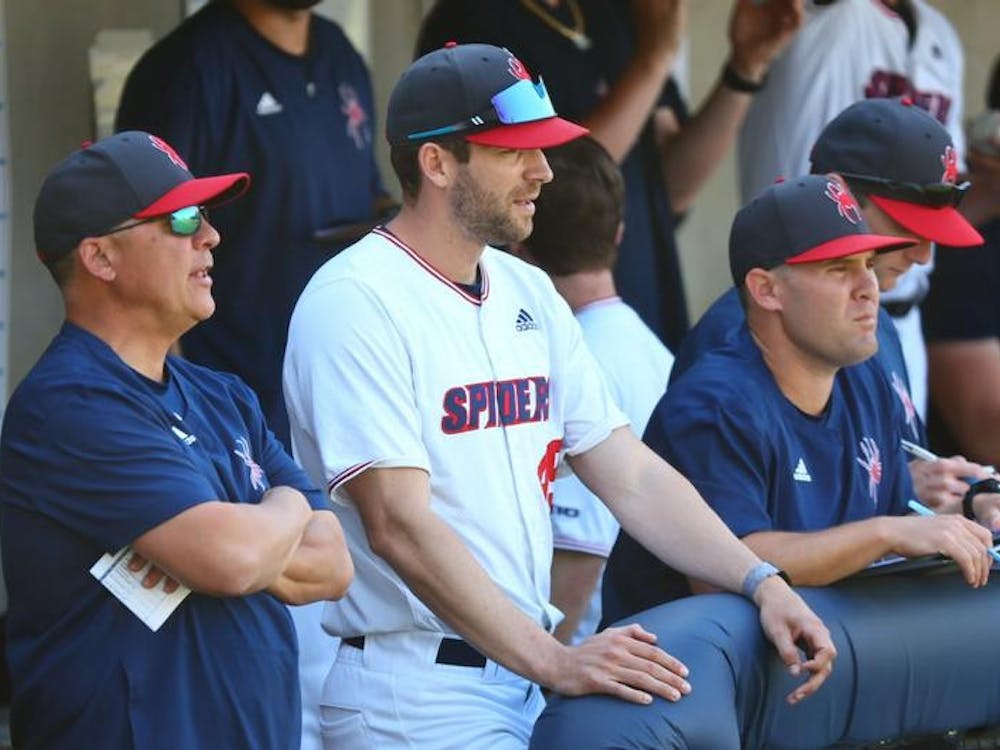Lodge culture is not the only social option for students at the University of Richmond. In a panel discussion, Rabbi Andrew Goodman of the chaplaincy and Westhampton College Dean Kerry Fankhauser took on the issues of gender, sexuality and mental health as they relate to the Richmond campus, from Greek life to religion.
Goodman said: "The problem lies with the fact that college students do not have enough cultural frames of reference to see that the lodge culture doesn't have to be the default. It's important to impart to them that their choices do affect them and will throughout their lives."
Both Fankhauser and Goodman said they hoped that by having these kinds of conversations, students could begin to see beyond the normative college culture.
"It's important to encourage students to challenge what they grew up with," Fankhauser said. "If we allow learning in every other facet of the college experience, I believe it's equally important in the religious and moral arenas."
The panel was part of the WILL Colloquium Gender Action Project (GAP), which is the main group project that all WILL members must complete as part of their general course requirements.
Westhampton College students and WILL members Kimberlee Laney, Melissa Diamond and Jennifer Johnson focused their GAP on the topic of mental health. The panel with Fankhauser and Goodman was the second event in this group's two-part project.
"The goal of today's panel," said freshman Kimberlee Laney, "was to gain an understanding of the interaction between the concepts of gender and sexuality and the perception of mental health on campus."
Goodman and Fankhauser had much to say about the topic of sexuality and what it would mean to have a candid conversation about sex on a college campus.
"I guess in a Utopian world, such a conversation would consist of sharing and learning in the context of a healthy debate," said Fankhauser, "but I don't think I've ever seen a successful large-scale discussion, because it is such a charged topic."
Goodman talked at length about the "us versus them" mentality that often surfaced when someone brought up the topics of sexuality or mental illness. Goodman said that "sexuality was written early in the texts of monotheistic traditions."
Fankhaser said many students grew up feeling that conversation about sex was taboo. "Especially when you have students who are US citizens," said Dean Fankhauser, "a lot of them haven't been raised having healthy conversations about sex."
As part of the discussion, WILL students asked the panel members for their opinions on the article "Letter to Women" that appeared in the Collegian last fall. The publication of the letter elicited appalled reactions from both male and female students, reactions with which Fankhauser and Goodman simultaneously agreed and disagreed. "Yes, the letter expressed the virgin or whore mentality," Fankhauser said, "and essentially gave women only two choices." But despite the black-and-white way in which the issue was posed, Fankhauser highlighted the truth in the student's words.
Enjoy what you're reading?
Signup for our newsletter
"There is a larger cultural disease in terms of how we view women," she said. "The man who wrote the letter is just one of hundreds of thousands of people who think the same thing."
Goodman said that the large number of people with these views was not an excuse. "We need to make sure that we are challenging and undoing some of the views that our culture holds of both men and women. Just because a woman is wearing a short skirt doesn't mean she's asking for it," he said.
Fankhauser and Goodman also pointed out that the perception of mental disease changed from culture to culture and from religion to religion.
"I'm hoping that the taboo surrounding mental health and sexuality is lessening within religious communities," said Rabbi Goodman. Despite his hope and increasing research on the topic, Fankauser pointed out that the Dean's office still saw students who cited religion as a main reason for not getting help when it came to mental health issues.
"When value systems are in line, you can start having the important conversations that break the silence surrounding sexuality and mental health," Goodman said. "It becomes harder when lots of different opinions are thrown together."
"But we're hopeful!" Fankhauser said. "We need to have conversations in which we give ourselves permission to be more than our animalistic tendencies."
Contact reporter Michele Martin at michele.martin@richmond.edu
Support independent student media
You can make a tax-deductible donation by clicking the button below, which takes you to our secure PayPal account. The page is set up to receive contributions in whatever amount you designate. We look forward to using the money we raise to further our mission of providing honest and accurate information to students, faculty, staff, alumni and others in the general public.
Donate Now


